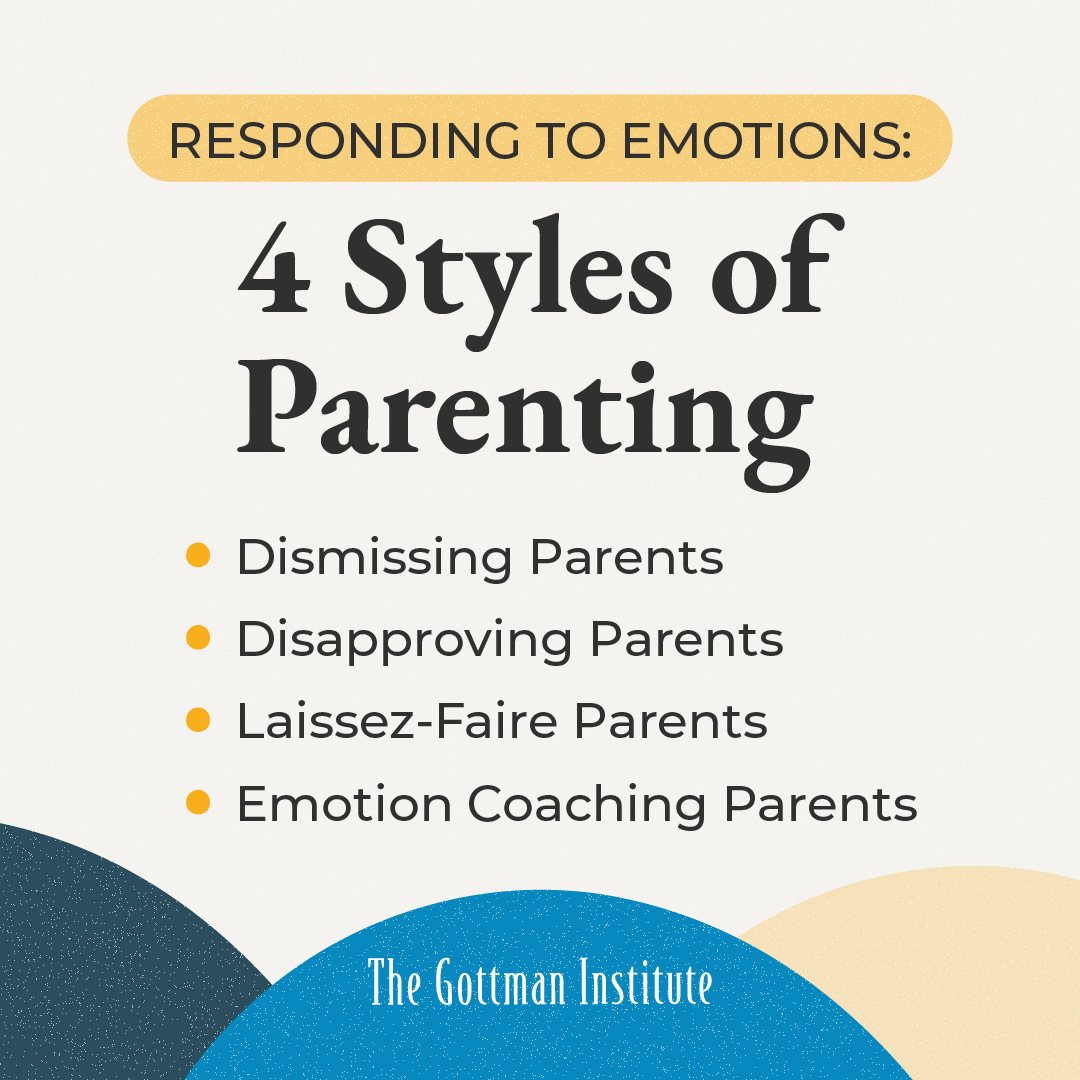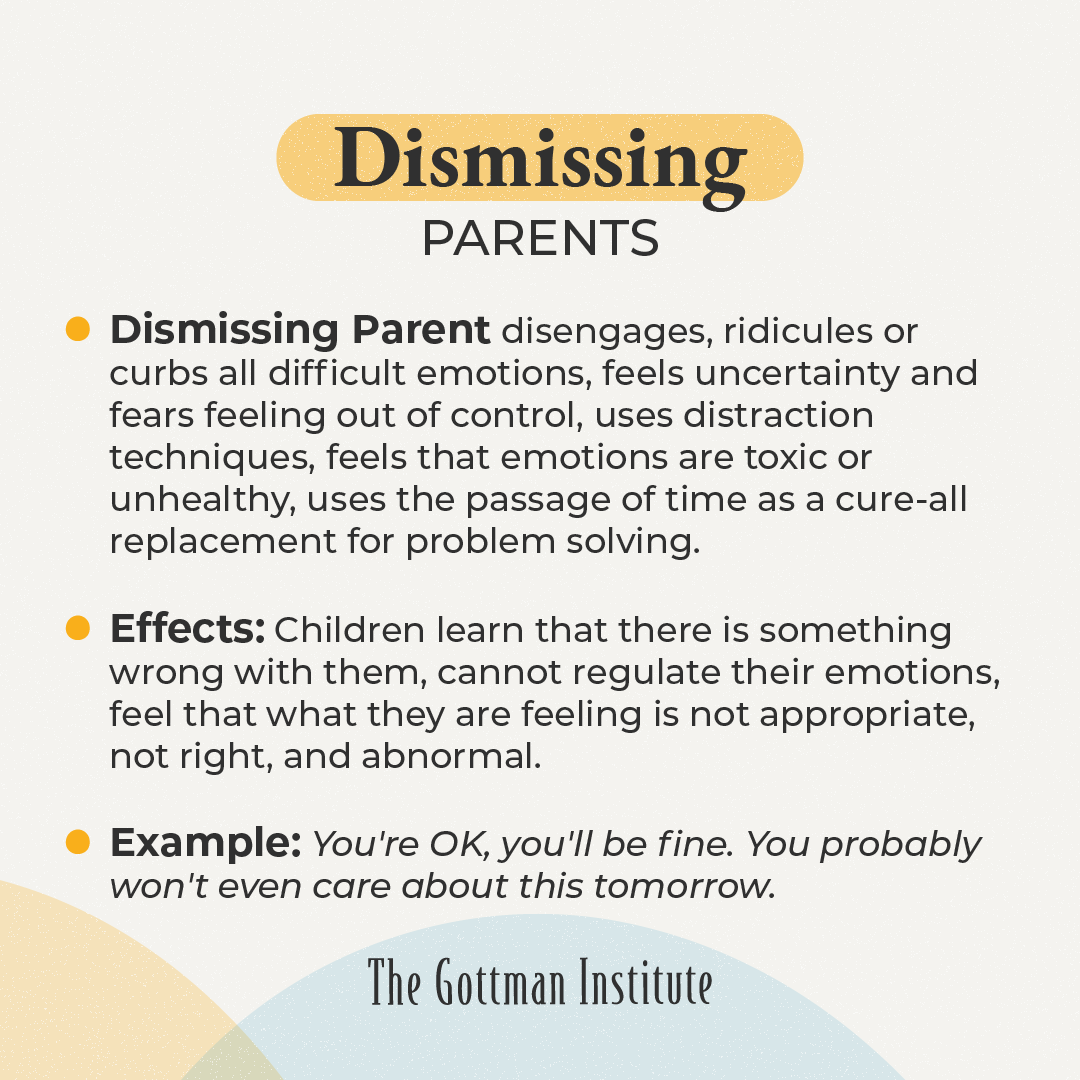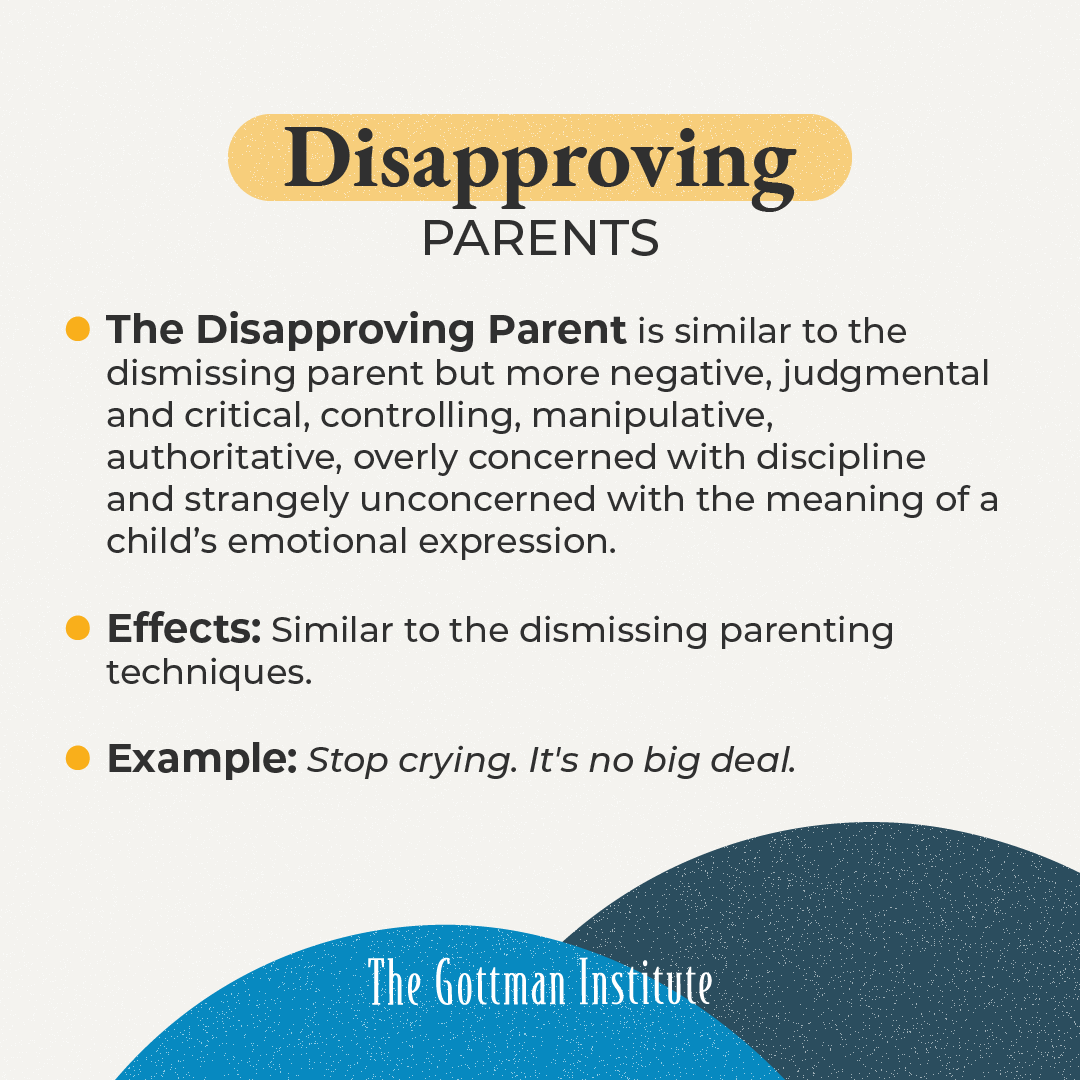There Are 4 Types Of Parents. Which One Did You Grow Up With?
by The Candidly Team
It’s hard to pigeon-hole our parents. How do you label a single person who at one moment offered up deep doses of affection and concern and at others criticized and ignored us like we were a fly on their shoulder. Or maybe you had a parent who was more consistent. A father who never backed down from his dismissive, “toughen up” attitude. Or a mother who flew so far off the handle from her own worrying that you had to hide your emotions for fear of releasing hers.
Whatever the circumstances were, how our parents regarded and responded to our emotions has likely had a profound and ongoing effect on us. So, when we read about relationship and parenting researcher John Gottman’s idea that there are basically four types of parents, categorized based on how they handle their kids’ emotions, our ears perked up.
Here are the four parenting styles as outlined by The Gottman Institute and how they may have affected you:
Dismissing
Disapproving
Laissez-Faire
Emotion Coaching
If you’re anything like us, just glancing at these titles gave you an immediate guess as to which category your parent(s) fell into. But here’s how each breaks down.
THE DISMISSING PARENT
What they do:
A dismissing parent is all about avoiding and actively overlooking their child’s feelings. They’re the sort of parent who says things like:
“You’re fine.”
“This will pass.”
“Crying won’t solve anything.”
“You’re gonna forget about this in like 10 minutes.”
They can’t seem to handle negative emotions, treating them as unfavorable, inconvenient, or unhealthy, and they will do what it takes to steer their kids away from them, be it through distraction, ridicule, downplaying, minimizing, or refusing to really engage with the feeling at all.
How it affects you:
If you grew up with a dismissing parent, you essentially had no model for how to regulate your emotions. You may feel like your feelings are bad, weird, or unacceptable, and therefore, you may also think of yourself as flawed or as an imposition, especially when you show any emotion.
THE DISAPPROVING PARENT
What they do:
A disapproving parent takes their intolerance for a child’s emotions to another level, tending to be more harsh and critical than a dismissing parent. This is the sort of parent that gets turned into a caricature in coming-of-age movies, where they’re depicted as mean-spirited, abusive, or completely uninterested in their child’s feelings. In reality, there are many degrees to a disapproving parent, and a lot of people grow up with this kind of presence lurking in their lives. They may say things like.
“Quit being a baby.”
“You’re so dramatic!”
“What is wrong with you?”
“If you don’t stop crying, I’ll send you to your room for the rest of the night!”
If you grew up with a disapproving parent, you probably felt very judged for your feelings. They may have tried to control or manipulate your emotions through punishment, discipline, and a generally overpowering way of relating to you. Again, they enforce the message that any negative emotions are weak, useless, and an imposition.
How it affects you:
You’ve probably struggled with regulating your emotions, and to some degree, have also internalized your parent’s perspective that your feelings are wrong and intolerable. You’re inclined to be self-critical about them and carry around the sense that there’s something about you that should make you feel ashamed.
THE LAISSEZ-FAIRE PARENT
What they do:
On the opposite end of the spectrum is the laissez-faire parent who tends to be pretty hands off, allowing every emotion their child has to flow freely with nearly no guidance. They may say things like:
“Let it out.”
“Go ahead and cry.”
Nothing at all. They may just stand idly by while the child falls apart, gets angry, or can’t get a handle on their feelings.
The problem is that the laissez-faire parent also makes little to no effort to help the child healthily handle their emotions. They avoid boundaries and limits. They believe negative feelings are what they are and should just wash over you and be gone. While they may take a gentler, non-critical approach, like a dismissing and disapproving parent, they’re not actually helping the child solve their problems or even really address them.
How it affects you:
Once again, regulating emotions is tough for the child of a parent who adopts this style. You may have had trouble getting along with others growing up. You may have the tendency to feel scattered, which makes it difficult to focus. You have no example to draw from for how to get yourself to calm down, so your moods can feel a little overwhelming and hard to process.
THE EMOTION-COACHING PARENT
What they do:
As you may have guessed, an emotion-coaching parent cares about their kids’ emotions. They think of feelings as meaningful, and they’re okay with a child expressing them. They’re curious and attuned and may say things like:
“You really seem to feel sad about this.”
“Do you want to talk about it?”
“I can tell this means a lot to you.”
“It’s ok for you to be angry.”
This style of parent generally meets feelings with patience. They see getting through these feelings as an opportunity to grow, problem-solve, and get closer. They also tend to show more emotional intelligence, tolerance, and acceptance of their own emotions. They’re neither critical nor judgmental. They ask questions, listen, empathize, and offer affection to their distraught child.
Their instincts are to soothe and help the child name the feelings they’re experiencing. Eventually, they’ll help guide them through how a problem can be solved. At the same time, they’re willing to set limits and teach their kids to self-regulate along the way.
How it affects you:
With this kind of parent having raised you, you’re much more likely to feel safe with your feelings and trust yourself. You have tools to regulate your emotions and reach a place of calm. Your tolerance for learning is higher. You tend to have healthier self-esteem and an easier time socially.
Before you stress, you should know that growing up at the whim of any of these parenting styles doesn’t doom us to a life of being unable to handle our feelings. It just means we may have specific kinds of struggles that we came by honestly. Identifying which parent type we had may help us better identify those struggles and deal with them directly as ways we were externally hurt rather than as deficiencies we internally possess. And if nothing else, it invites us to have more self-compassion, not to mention to be more emotionally attuned to our own kids.
Speaking of which, if you’re a parent and are curious what parenting style you may be practicing with your child, The Gottman Institute offers THIS useful quiz.
This article is for informational purposes only. It is not intended to be used in place of professional advice, medical treatment, or professional care in any way. This article is not intended to be and should not be a substitute for professional care, advice or treatment. Please consult with your physician or healthcare provider before changing any health regimen. This article is not intended to diagnose, treat, or prevent disease of any kind. Read our Terms & Conditions and Privacy Policy.











